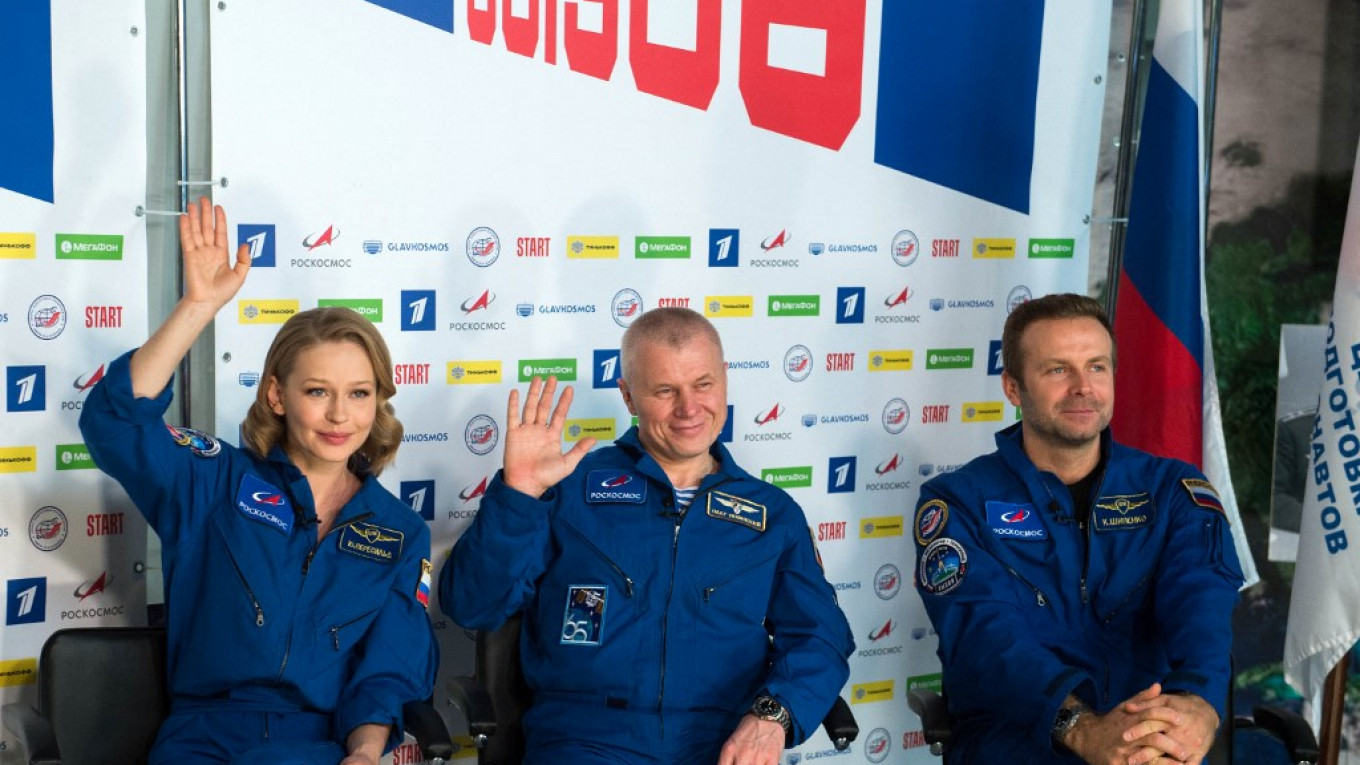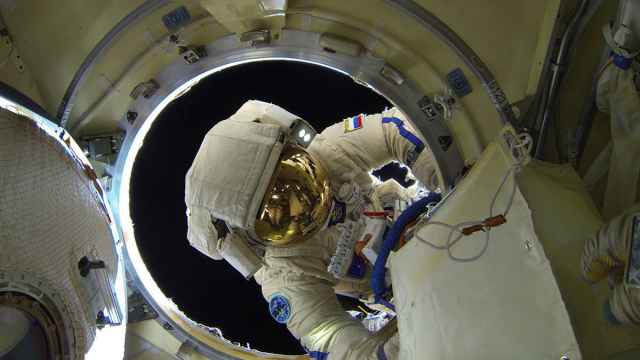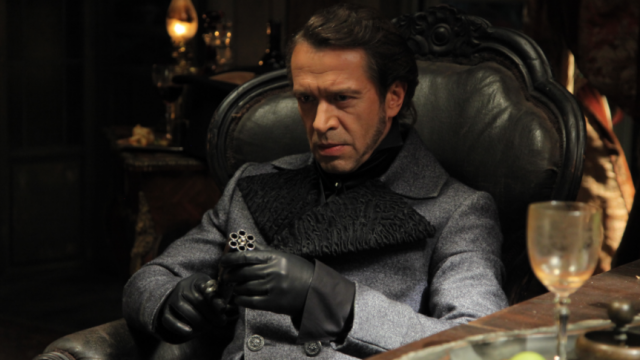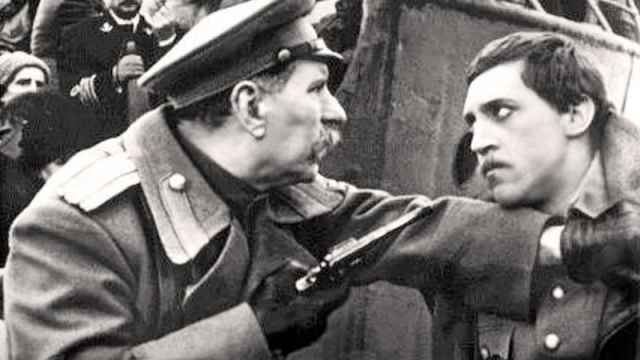Their movie props floated around and they used Velcro to keep objects in place but Russia's first film crew in space said they were delighted with the result and had "shot everything we planned."
Yulia Peresild, one of Russia's most glamorous actresses, and film director Klim Shipenko returned to Earth on Sunday after spending 12 days on the International Space Station (ISS) shooting the first movie in orbit in an effort to beat the United States.
The plot of "The Challenge" has been mostly kept under wraps along with the budget. It centers around a surgeon who is dispatched to the ISS to save a cosmonaut.
A beaming Shipenko told reporters that the task was a "huge challenge" and they had to constantly adapt to film scenes.
They shot more than 30 hours worth of footage which will later be edited down to around 30 minutes.
"We've shot everything we planned," Shipenko said from the Yuri Gagarin Cosmonaut Training Center outside Moscow where he and Peresild, 37, have been adapting to life back on Earth and learning to walk again.
The 38-year-old U.S.-educated film director said cinema was ready to conquer space.
"Cinema is looking for new forms. The cosmos is also ready to welcome various experimentalists," said Shipenko, who like the actress sported the blue uniform of Russian cosmonauts.
He said his stint on the ISS was full of professional discoveries and added that he would never have been able to shoot on Earth what he had shot in space.
If the project stays on track, the Russian crew will beat a Hollywood project announced last year by "Mission Impossible" star Tom Cruise together with NASA and Elon Musk's SpaceX.
Beauty sleep in space
Peresild said she had to use Velcro tape to keep her belongings including lipstick and mascara in place, while various movie props like medical devices floated in space.
"They are so small and fly away so fast," she said.
Peresild said she was impressed by the warm atmosphere on the ISS and cooperation among international crew members and added that she loved sleeping in space.
"I never thought it was such a pleasure. It's a great thing for girls — you never have pillow marks. You look perfect," she said, laughing.
The film crew praised Russian cosmonauts on the ISS who they said were very helpful and will have cameo roles in the film.
The cosmonauts Oleg Novitsky, Anton Shkaplerov and Pyotr Dubrov helped adapt the scenario and make dialogues more natural, said Shipenko.
"The guys found they had acting talent," he said. "I made them find it," he said, laughing.
Peresild said that the cosmonauts had to perform a "huge amount of tasks" during the day but "they continued to work with us at night."
Shipenko directed "Serf," a comedy about a misbehaving rich kid that that became the top money making Russian film of all time in the home market.
The director said on Tuesday he was certain his space movie project would pay off.
"I have such expectations," he said. "Cinema can bring big money."
The film crew's mission added to a long list of firsts for Russia's space industry after a number of setbacks including botched launches.
The Soviets launched the first satellite Sputnik, and sent into orbit the first animal, a dog named Laika, the first man, Gagarin, and the first woman, Valentina Tereshkova.
A Message from The Moscow Times:
Dear readers,
We are facing unprecedented challenges. Russia's Prosecutor General's Office has designated The Moscow Times as an "undesirable" organization, criminalizing our work and putting our staff at risk of prosecution. This follows our earlier unjust labeling as a "foreign agent."
These actions are direct attempts to silence independent journalism in Russia. The authorities claim our work "discredits the decisions of the Russian leadership." We see things differently: we strive to provide accurate, unbiased reporting on Russia.
We, the journalists of The Moscow Times, refuse to be silenced. But to continue our work, we need your help.
Your support, no matter how small, makes a world of difference. If you can, please support us monthly starting from just $2. It's quick to set up, and every contribution makes a significant impact.
By supporting The Moscow Times, you're defending open, independent journalism in the face of repression. Thank you for standing with us.
Remind me later.






